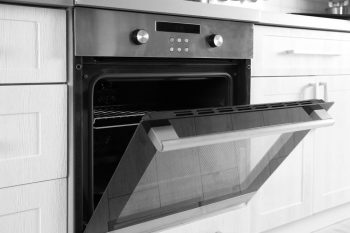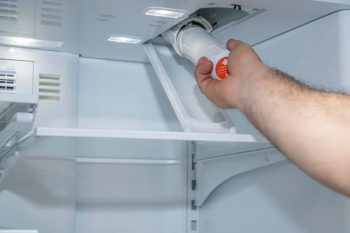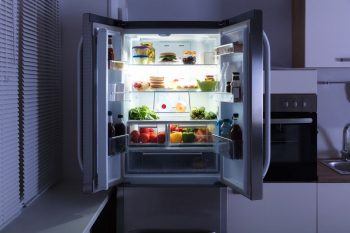
Dometic is a well-known brand in the mobile living industry, manufacturing a range of products designed to enhance the comfort and convenience of life on the move. One of their most popular product lines is their refrigerators, which are equipped with features and designs that cater specifically to the needs of campers, RV travelers, and boat enthusiasts. If you have ever wondered where these high-quality, innovative refrigerators are manufactured, this article is for you.
Dometic refrigerators are manufactured in various locations worldwide, including the United States, Germany, and China. The specific location depends on several factors such as proximity to markets and customers, availability of a skilled workforce, and access to suppliers and raw materials. The company’s commitment to quality and sustainability is reflected in its manufacturing processes across all these locations.
History of Dometic
Before we delve into where Dometic refrigerators are made, let’s take a brief look at the company’s history. Founded in 1923, Dometic Group is a Swedish company headquartered in Solna, Sweden. The company originally started manufacturing refrigerators in Motala, Sweden, in 1922. Over the years, Dometic has expanded its product portfolio and acquired several companies, further growing its global presence. As of 2022, Dometic operates in the Americas, EMEA, and Asia Pacific, selling its products in approximately 100 countries.
Dometic Refrigerator Manufacturing Locations
Dometic refrigerators were previously manufactured in Elkhart, Indiana. However, in 2022, Dometic announced plans to end manufacturing at its Elkhart location and move production to a regional facility that already manufactures other Dometic products. The move was part of Dometic’s global strategy to focus on cost and efficiency improvement objectives.
In addition to the United States, Dometic also has refrigerator manufacturing facilities in Germany and China. The company’s decision to locate its manufacturing facilities in these countries is influenced by several factors, including proximity to customers and markets, the availability of a skilled workforce, and access to suppliers and raw materials.
Quality Control at Dometic Manufacturing Facilities
Dometic implements various quality control measures at their manufacturing facilities to ensure the production of high-quality products. All Dometic production plants are certified according to ISO 9001 and ISO 14001, which are international standards for quality management systems and environmental management systems, respectively. The company also employs quality engineers who work closely with manufacturing operations to identify and resolve production and quality system deficiencies.
Environmental and Sustainability Practices
Dometic is committed to implementing environmental and sustainability practices in its manufacturing processes. The company aims to create products through economically sound processes that minimize negative environmental impacts while conserving energy and natural resources. Some of the key practices include evaluating and optimizing the use of fossil fuels, decreasing pollution and emissions, recycling and reducing waste production, and establishing policies and procedures for sustainability.
Why Choose Dometic Refrigerators?
Dometic refrigerators stand out from other brands due to their performance, design, and features tailored for mobile living. They are designed with features that ensure safe and secure closure even while driving in rough terrain with an RV. Dometic offers a wide variety of refrigerators for mobile use, including absorption and compressor fridges, catering to different needs and preferences.
The Future of Dometic
The future outlook for Dometic and its manufacturing processes appears to be promising. The company is continuously working on improving its manufacturing processes and optimizing its product offerings. In terms of sustainability, Dometic is committed to using energy-efficient production methods and recyclable materials, enabling customers to work more efficiently and sustainably.
In conclusion, Dometic refrigerators are manufactured in various locations worldwide, including the United States, Germany, and China. The company’s commitment to quality, innovation, and sustainability ensures that their products are not only top-notch but also contribute to a greener and more sustainable future.
Frequently Asked Questions
What types of refrigerators does Dometic manufacture?
Dometic manufactures a variety of refrigerators suitable for mobile use. This includes both absorption fridges, which are silent and ideal for places with limited electricity, and compressor fridges, which offer excellent cooling performance and can operate on uneven surfaces.
What was the reason behind the closure of the Elkhart, Indiana manufacturing location?
Dometic decided to shut down its manufacturing operations in Elkhart, Indiana, to focus on cost and efficiency improvement objectives. The production was moved to another regional facility that already manufactures other Dometic products.
Does Dometic have any sustainability certifications?
Yes, all Dometic production plants are certified according to ISO 14001, an international standard for environmental management systems. This certification demonstrates Dometic’s commitment to implementing environmentally friendly practices in its manufacturing processes.
Are Dometic refrigerators suitable for use in boats?
Yes, Dometic refrigerators are designed with features that cater to the needs of boat enthusiasts, among others. They are built to withstand the challenges of mobile living and ensure safe and secure closure even while sailing.
What measures does Dometic take to ensure the quality of their products?
Dometic implements strict quality control measures at their manufacturing facilities. They are certified according to ISO 9001, an international standard for quality management systems. The company also employs quality engineers who work closely with manufacturing operations to identify and resolve production and quality system deficiencies.












